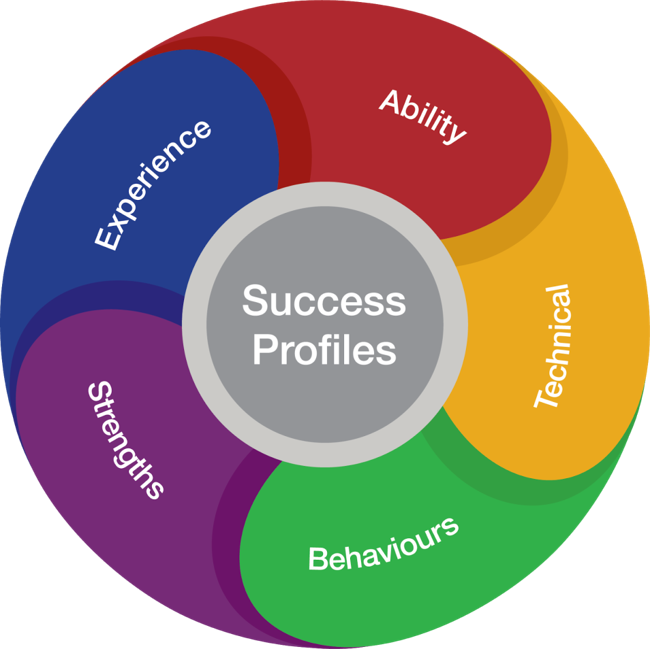- 07951750889
- [email protected]

Levels 1 - 3 Accredited Courses
by The Skills Network

The pdf below shows the courses available through The Skills Network. If you are interested in any of these courses, please contact Nigel Williamson, [email protected], or use the contact form further down the page.
If you are unable to see the conent below, please use these buttons;

Auto Assessed Short Courses
by The Skills Network

Essential Skills

Understand numerical data, carry out calculations and interpret and present results and findings
Speaking and listening reading and writing
Digital responsibility, digital productivity, digital information literacy, digital collaboration, digital creativity, digital learning.
Critical thinking and problem solving, planning and organising, creativity and innovation and personal effectiveness.
Success Profiles
This short webinar reprises the basic elements of ‘Success Profiles for the Applicant’ session but has been adapted and updated to offer a focus on behaviours examples and statements.
This fully interactive session offers an introduction to Civil Service Success Profiles and is aimed at Civil Servants who need to understand the system when applying for roles. It includes interactive ‘break out’ exercises and has been updated in December 2021 to reflect in response to feedback and changes in CS practice since COVID and includes interactive ‘break out’ exercises.
This fully interactive session will offer an outline of Strengths within Civil Service Success Profiles when used for recruitment, from the perspective of understanding what to expect as an interviewee. It is primarily aimed at Civil Servants who may need to understand the system when applying for roles or going through Gateways. The course includes interactive ‘break out’ exercises. Whilst this course does reflect the classroom based event run by FDAlearn for departments across the UK since November 2018, new material has been added and the course updated.
This NEW Teams session is intended for civil servants who feel ready for a career change but find the prospect of the Civil Service Success Profiles framework a little daunting. The session aims to offer a basic understanding of Civil Service Success Profiles, so that participants can then feel confident in proceeding to a more detailed course looking at specific aspect of the framework.
The session is delivered by Chris Park who has delivered very popular interactive sessions around Success Profiles for CS employers across the UK for over 4,000 civil servants since COVID.
This course is provided for the Prospect in Wales by the FDA. It covers how to put together and draft an example of a Behaviour under the new Success Profiles recruitment system. No existing knowledge is needed to participate, and group sizes are small to maximise the opportunity to ask questions and undertake short breakout exercises. You will be taken through what a Behaviour is, how you can structure your example and what you are trying to achieve, with tips on refining your drafting. There will be an introduction to Behaviours on the application form and the most commonly encountered ways vacancy holders ask for examples.
The session is delivered by Chris Park who is a CS ‘trained trainer’ for Success Profiles who has delivered interactive sessions for over 2,000 civil servants.
This course covers how to put together and draft an example of a Behaviour under the new Success Profiles recruitment system. No existing knowledge is needed to participate, and group sizes will be kept small to maximise the opportunity for participants to ask questions and undertake short exercises in Breakout rooms. You will be taken through what a Behaviour is, how you can structure your example and what you are trying to achieve with it, together with tips on refining your drafting. There will be an introduction to Behaviours on the application form and the most commonly encountered ways vacancy holders are asking for your examples.
This online interactive course will take you through what to expect in a blended interview under Civil Service Success Profiles, covering the basics of both Behaviours and Strengths questions, scoring and the expectations around answering these types of question at interview. There will be the opportunity to see others attempting to answer both types in short videos, together with the use of breakout rooms enabling participants to discuss issues and have a go at answering Strength-based questions if they wish to.
In this NEW 2-hour session participants will gain an overview of the different elements of an application form that they may encounter (based on CS Success Profiles). The session will address typical application forms, but there is not usually a one-size-fits-all for the forms. The aim is to build insight into the different elements of an application form and an understanding of what is expected. This session will invite participants to interact by answering questions in the chat function (but this is voluntary). No access to a camera or mic will be needed. Participants may then wish to undertake the more detailed and fully interactive sessions on particular aspects of the recruitment process.
In this NEW 2-hour session, participants will go through the different elements that they may encounter in an interview in the Civil Service under Civil Service Success Profiles.
The session will aim to give participants an insight into what to expect and how they can prepare themselves in order to build confidence prior to an interview. This session will invite participants to interact by answering questions in the chat function (but this is voluntary). No access to a camera or mic will be needed.
Participants may then wish to undertake the more detailed and fully interactive sessions on particular aspects of the recruitment process.

Additional Courses

Association for Project Management
The APM Project Fundamentals Qualification (PFQ) is aimed at those wishing to gain a broad understanding of the principles of the profession of project management.
It is for those individuals who are – or who intend to be – involved in the running of a project.
It is an excellent introduction to the basic disciplines and the specialist vocabulary used when managing projects.
It would suit people just starting out in project management, and those who, though they may not intend to become project managers, need to manage relatively non-complex projects.
No prior knowledge or experience is required for this foundation level qualification.
The purpose of the learning is to ensure candidates have sufficient knowledge and understanding to successfully complete the PFQ multiple-choice examination.
The course covers the learning outcomes set out in the APM Book of Knowledge (Book 7th edition), included in the PFQ syllabus.
Candidates will be provided with access to the “Your CITI” portal. The portal houses the online learning resources required to study for the qualification and as it is available 24:7 providing a flexible learning resource. There is no pre-set time frame for the course and students set their own pace of study. The project team will contact individual learners on a regular basis to review progress and provide any assistance that is required.
It is critical that each individual commits to undertaking the learning to ensure they achieve the best experience and maximise their knowledge acquisition and their chances of success in the examination.
It is important that the learning is not all ‘back-loaded’ to ensure that each element is fully understood before undertaking the next.
We recommend a minimum of 10-15 hours learning is undertaken over a period of 1-2 months ahead of the exam.
The online learning is structured to gradually introduce the candidates to the problems that project management is required to address, and the mechanisms by which this is achieved.
At the end of each section, they are asked questions to test their understanding.
There is a narration available and quick knowledge tests throughout to ensure participants gain an interactive experience and understand concepts.
Topics covered include:
- The project context
- Project organisation
- Project lifecycles
- Planning
- Scope management
- Risk & issue management
- Developing a schedule
- Quality management
- Project communication
- Leadership and team management
The learning is made up of twelve modules, as you work through the course you have the facility to navigate backwards and forwards allowing you the option of revisiting previous topics to ensure that you have fully understood how added information impacts on what you have previously learned.
Once all twelve modules have been completed you can take a mock examination that will assist you in determining if you wish to arrange for the official examination or to have the option of repeating any of the learning bytes, modules or to even undertake a further mock examination
Please ensure you are confident and comfortable with the learning before applying for the examination.
- 10 online topics
- Over 100 practice questions and exercises
- Over 150 glossary items including flashcards
- Terminology quizzes
- Short tests
- ‘Ask the trainer’ options
- Mock examinations
The one-hour multiple-choice exam can be booked when the participant feels ready. Please contact (CITI) and they will it organise for you (allow 7 days’ notice).
The examination consists of 60 questions,
Level 2 Gym Instructor course
The Chartered Institute for the Management of Sport and Physical Activity (CIMPSA) Level 2 Gym Instructor course will allow you to develop your knowledge and understanding about the following topics:
- The key principles of exercise, fitness, and health, including the components, principles, and variables of fitness, the health, and benefits of physical activity, and the importance of healthy eating.
- Anatomy and physiology of the human body and how this relates to exercise and health, including postural and core stability.
- Effective working relationships with clients, how to provide ongoing customer services, and how to support clients to adhere to exercise/physical activity.
- That gym instructors need to maintain health, safety, and welfare in a fitness environment, including the safeguarding of children and vulnerable adults.
- Plan and prepare a gym-based exercise programme with apparently healthy adults – both individuals and groups.
The course is delivered online by Diverse Trainers
Live online webinars with their team of expert tutors.
Interactive e-learning access on the Enterprise Learning Academy,
including an app, so you can study on the go
Open book, multiple choice exams online exams, with no hidden fees for
any re-sits
Pre-recorded exercise library and seminars available
Complete support throughout your learning journey
All practical assessments completed via video recording, giving you
multiple chances to get it right.
Qualify in as little as 6 weeks
For online courses, you are required to complete 20 hours of industry experience shadowing a Personal Trainer and/or attending fitness classes.
Level 2 Gym Instructor
- Unit 1 – Principles of health and wellbeing for exercise, fitness, and health
- Unit 2 – Anatomy, physiology and kinesiology for exercise and health
- Unit 3 – Know how to support client’s lifestyle management and enhance client motivation for exercise and physical activity
- Unit 4 – Principles for professional practice and health and safety in a fitness environment
- Unit 5 – Planning professional practice with effective consultations and assessments for gym-based exercise sessions
- Unit 6 – Instructing professional practice and effective exercise supervision in gym-based exercise sessions
Online Learning
Cheaper option
More convenient and can fit around your other commitments.
You can complete in your own time and at your own pace.
Offers all digital reading, audio, and video materials, easy to use as reference as and when needed.
Less pressure
Can have repeated attempts to deliver and record practical assessment, till your happy with your session.
Level 3 Award in Education and Training (AET)
This qualification was previously known as PTLLS (Preparing to Teach in the Lifelong Learning Sector) and is the ideal foundation course for anyone looking to teach in the adult education and skills sector. This is a nationally regulated qualification awarded by Training Qualifications UK (TQUK) who are an OFQUAL regulated awarding organisation.
POA Learning are collaborating with provider partners at CTC Training to deliver this opportunity. The Level 3 Award in Education and Training has approximately 48 hours of study time and, including research and assessment time, takes approximately 120 hours to complete. You can choose how you wish to divide these hours. You may wish to complete the course in a matter of weeks or spread it over the entire twelve months.
This Level 3 course is delivered completely online, allowing you freedom to work at a pace that suits you from a location of your choosing – which includes your own home! The online learning platform is available 24 hours a day, 7 days a week. The course provides a range of materials including reading and interactive elements which are designed to help you achieve your qualification and extend your teaching skills
You will be required to complete a workbook for each of the units containing short answer questions and submit this to your tutor for marking through the online system.
Unit 1 (Unit reference H/505/0053)
Understand the teaching roles and responsibilities in education and training. Recognise ways to maintain a safe and supportive learning environment. Appreciate the relationships between teachers and other professionals in education and training.
Unit 2 (Unit reference H/505/0052)
Understand inclusive teaching and learning approaches in education and training. Understand ways to create an inclusive teaching and learning environment and be able to plan inclusive teaching and learning and evaluate the delivery of inclusive teaching and learning.
Unit 3 (Unit reference D/603/5313)
Understand the principles and requirements of assessment, the different types of assessment methods, how to plan assessment. Understand how to involve learners and others in assessment and how to make assessment decisions.
Understand quality assurance of the assessment process.
Understand how to manage information relating to assessment.
Understand the legal and good practice requirements in relation to assessment.
Micro Teaching.
This element will allow you to demonstrate your knowledge and skills in the elements you have studied in units 1, 2 and 3. You will be asked to plan a 15-minute lesson which should be delivered with a minimum of 1 learner in either a real classroom environment or a simulated classroom such as your own home. The micro teaching lesson should be recorded using a camera such as on a smart phone or tablet pc and submitted via the online portal for marking by a tutor. This element is assessed completely online, and you are not required to attend a training centre to deliver your teaching
CTC training also offer a level 4 Certificate in Education and Training as well as a level 5 Diploma in Education and Training.
Interested? Message Us
Union Learning Representative
What is a Union Learning Representative and what do they do?
A union learning rep (ULR) is an elected and trained workplace learning advocate. It means working with your colleagues to find out what kind of learning most interests them and what kind of courses they'd like to attend, and working with your union, employer and learning providers to offer those courses, or signpost learners to where they can access them.
Click Here
What's in it for me?
As well as the opportunity to help your colleagues and improve skills, progression and morale within the workplace, becoming a ULR is also a great opportunity for your own development. Many ULRS have gone on from their volunteer role to forge new career paths in the field of adult learning and skills.
Click Here
How do I become a ULR?
If union members want to become ULRs, they should first discuss it with the relevant workplace structure of their union (for example, branch or shop stewards committee), or their full-time officer. All ULRS are given training for their through courses provided by TUC Education and individual unions. Any union member with an interest in learning and skills would be suitable as a ULR.
Click Here
What training is involved?
The Wales TUC offers full training for ULRs, at no cost. The initial ULR stage 1 course is six days long, usually run as one day a week for six weeks, although this can be tailored to suit. The course is delivered by experienced tutors in an informal setting and there are no exams or tests, just an ongoing portfolio of work that you will build up as the course progresses.
Join Now
Union Learning Rep Pathway
Union Learning Reps Part 1
If you’re a new Union Learning Rep (ULR), this course is essential. It will give you the skills and knowledge you need to be an effective ULR. The course will teach you:
- The role of the ULR
- The trade union approach to learning and skills in the workplace
- How to promote the value of learning How to identify learning needs
- How to remove barriers to learning
Union Learning Reps Part 2
To continue your development as a ULR, we will be offering Getting Organised to Promote Learning and Workplace Learning and the ULR two day courses, please see course listing for dates.
What support is available?
Union learning reps have the right to paid time off to complete the training and reasonable paid time off to carry out their duties (Employment Act 2002). After you have completed the course you will join a network of over 1,000 ULRs across Wales.
The Wales TUC offers full support to reps in the form of additional training
opportunities and events, access to network meetings and one-on-one assistance
if needed, in addition to the support you will receive from your own union.
Click Here
I'm interested. What next?
If you would like to sign up for a ULR course, speak to your own union in the first instance ([email protected]) or contact the Wales TUC Learning Services team.
To find out more about becoming a union learning rep or how to access workplace learning opportunities through union-led learning contact:
Wales TUC Learning Services
Wales TUC
[email protected]
029 2034 7010
Click Here


